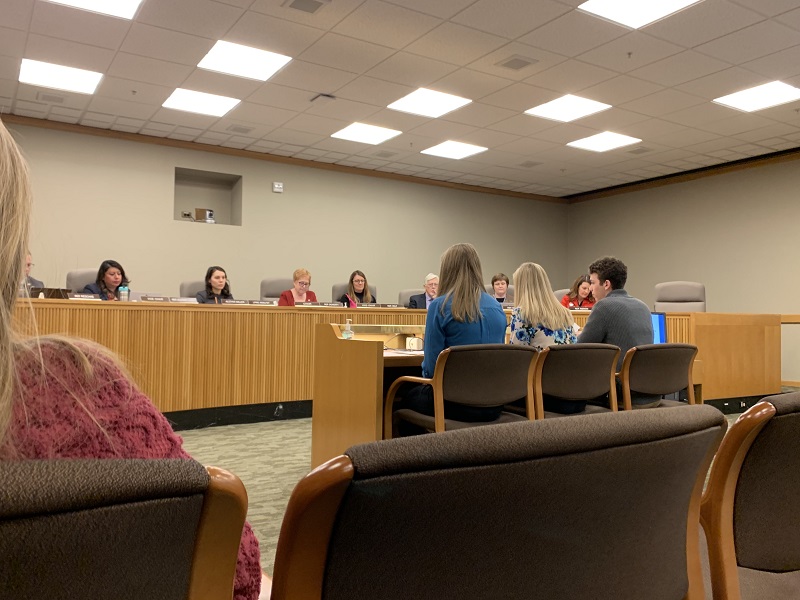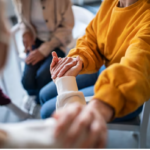#Work2BeWell is prioritizing mental well-being
Powered by Providence St. Joseph Health and Well Being Trust, the youth-driven movement is spurring conversations around mental health and well-being
It was the suicide of a good friend two years ago — and school administrators’ poor handling of it — that made JJ Riddell realize things needed to change. The now high school senior in Redmond, Oregon, saw a desperate need for more informed approaches to facilitating post-suicide conversations and preventing future teen suicides.
As part of this effort, Riddell joined the #Work2BeWell student advisory council, a youth-driven, grassroots movement and coalition empowering students to take action and increase awareness around emotional well-being and mental health in their schools and communities.
Riddell and his peers’ efforts have paid off: This summer, a student-led effort succeeded in passing Oregon House Bill 2191, which requires public high schools to count mental health days as excused absences—just as they would a traditional “sick” day. But the bill is just one of many significant efforts these youths are taking on as part of a greater mission to encourage open dialogue around mental health in Oregon’s schools and legislature.
From kickstarting new clubs and podcasts to implementing statewide curriculum around mental well-being, #Work2BeWell is being driven by youths who are ready to make change happen.
By youth, for youth
#Work2BeWell, created in partnership with Providence St. Joseph Health, Well Being Trust, the Oregon Association of Student Councils, iHeart Media, #ICANHELP and YouthLine, is a movement rooted in a network of student leaders with the influence, passion, and drive to push for changes around mental health where they live.
“The adults working with us want to listen and help us make change,” Riddell said. “Our voices have power, and we’re the ones running this.”
Since joining late last year, he and the rest of the student advisory council have been working hard to educate school districts on best practices for suicide prevention and post-suicide conversations. Last year, #Work2BeWell hosted a conference about youth suicide at George Fox University, bringing together students, teachers and district leaders to discuss suicide and all things mental health.
Youth involvement in this mission is important because this generation understands the needs of its peers better than anyone else, he explained. But for many of the adults working alongside these students, this is a chance to help start the conversation they never got to have.
“When I talk to adults about their experiences with mental health growing up, they often share how they were told to suck it up, toughen up, get over it or, worst of all, to not think about it,” Riddell said. “But my generation doesn’t want to push these issues aside — we want to take the steps necessary to be better now.”
Inspiring change
For Maraka Hawk, an incoming board member of the #Work2BeWell student advisory council and rising high school senior from Portland, Oregon, joining the movement was an exciting opportunity to work with other students who care just as deeply about promoting a culture of well-being.
“I’ve had my dealings with mental health and often felt that I didn’t have the right resources to get through my struggles,” she said. “Through #Work2BeWell, I hope to help others in situations similar to mine by ensuring greater access to mental health resources and making it known where they can find support, so no one feels like they have to go through it alone.”
Riddell couldn’t agree more. This year, he’s most looking forward for #Work2BeWell to advocate for establishing a statewide mental health curriculum in Oregon public schools. Currently, the only states in the U.S. with in-depth mental health curriculums are New York and Virginia. With Oregon ranking as one of the top 10 most depressed states in the country, Riddell says there’s a great need for this state to put curriculum in place.
Ultimately, #Work2BeWell is about elevating the experiences of younger people who often feel they don’t have a say.
“This movement is a way for youth to be heard,” Hawk said. “I hope it inspires others to share their mental health stories and understand it’s not just adults who have a say — we can incite change too.”






